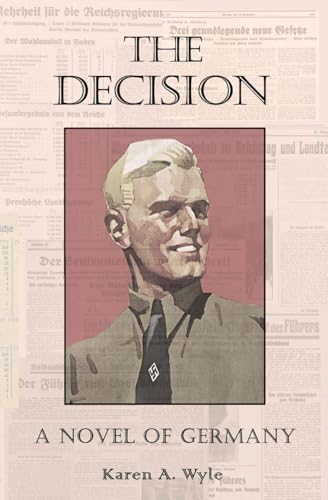The Decision
The decision made in this novel may seem to be an innocuous, trivial one. But history and circumstance can make the most mundane of actions quite extraordinary. Take, for example, the fate of three Jewish boys, brothers, living in Nazi Berlin shortly before the war begins and the concentration camps open up their maws for all German Jews. They are riding their bicycles one sunny morning when the youngest brother, trying to keep up with his faster, more experienced, siblings, crashes into an old man on his own bicycle. A street car screeches towards them. A crowd of anti-Jewish Berliners gathers. A policeman wearing beneath his uniform the SA colors of a member of the feared Brownshirts pulls the frightened boys aside. And a decision is made.
Author Wyle’s biographical history centers on the policeman whose decision could have ended the freedom not only of the three brothers but of their entire family. It was a very public decision whose cost could have been almost as disastrous for the unknown enforcer of the law. The Decision is the story of this unknown policeman, a minor cog in the terrifying Nazi regime. His name is Hans, and he grows up in a post-war Germany in a family struggling to survive the economic blows Germany had to endure after WWI. He has two loving parents, an older brother who aspires to be an actor, a younger sister. And a Jewish schoolmate.
Wyle has brought to life a real family experiencing the calamitous changes Germany endured from the end of one war through the rise of Nazism. Heroes are often made from everyday stuff, their moment of profound bravery never recorded. In The Decision, Wyle has placed the wreath on an unknown hero.










